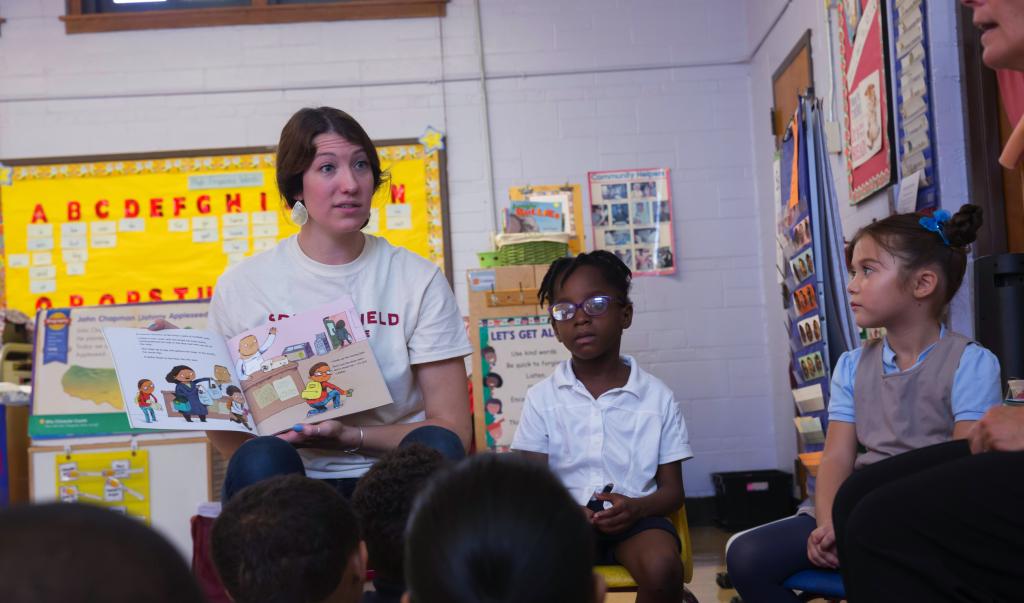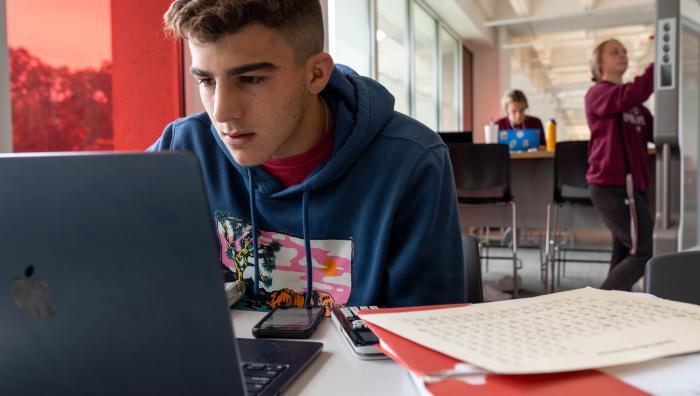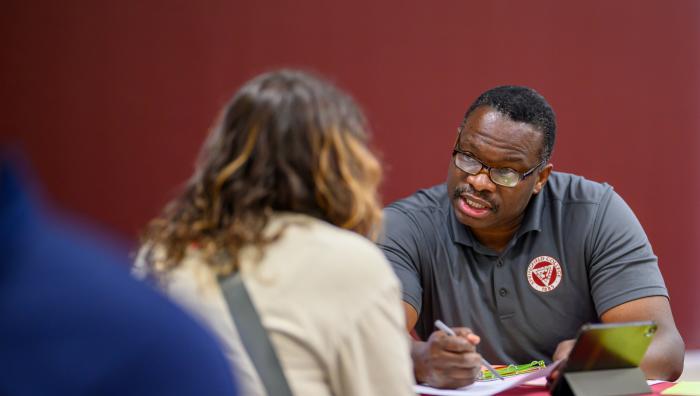Elementary and Special Education
Bachelor of Science with Dual Teacher Licensure
| About This Program | |
|---|---|
|
Program Contact
Mark D. McCarthy The Office of Educator Prep and Licensure can help answer your teaching license questions. |
|
|
Review our admissions requirements |
|
Curriculum and Delivery
|
|
| Graduate Success and Careers | |
| Paying for Your Education | |
|
Upcoming Events
Check back soon for upcoming events! |
|

Lean Into a Human-Helping Profession.
Springfield College’s renowned reputation for preparing leaders in human-helping professions, like teaching, offers an exceptional educational experience for individuals committed to dedicating their lives to educating children.
The Springfield College Education Major: Elementary Education and Special Education dual licensure program provides the professional skills and knowledge that undergraduate students need to successfully work with elementary-aged students (1-6) or students with moderate disabilities (PreK-8). The combination of coursework and real-world, hands-on learning gives dual licensure graduates the preparation and the confidence they need to manage a wide range of classroom experiences.
Through working in a range of educational environments, like inclusion classrooms, students become highly skilled and effective elementary classroom teachers, and will learn a wide variety of teaching strategies. Most importantly, they’ll graduate with the know-how and ability to meet the needs of all children. They’ll learn from experienced faculty who are passionate about continuing to advance and strengthen the teaching profession at the elementary level.



